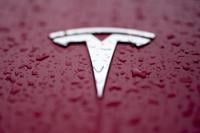LONDON (AP) — The United States and Europe are drawing up a voluntary code of conduct for artificial intelligence, a top European Union official said Wednesday, as the developing technology triggers warnings about the risks it poses to humanity and growing calls for regulation.
The voluntary code would bridge the gap while the 27-nation that won't take effect for up to three years, European Commission Vice President Margrethe Vestager said at a meeting of the EU-U.S. Trade and Technology Council, which is jointly led by American and European officials.
“We need accountable artificial intelligence. Generative AI is a complete game changer," Vestager said, adding that a draft of the code was expected within weeks.
She said officials will seek feedback from , invite parties to sign up and promised “very, very soon a final proposal for industry to commit to voluntarily," she said at a press conference after the council's meeting in Sweden.
The council has “an important role to play in helping establish voluntary codes of conduct that would be open to all like-minded countries,” U.S. Secretary of State Antony Blinken said.
The such as ChatGPT has dazzled users with their capability to mimic human responses while , setting off a global debate about how to design guardrails for the technology.
Scientists and tech leaders warned that because it could lead to human extinction, according to a statement posted online Tuesday and signed by hundreds of experts.
Sam Altman, CEO of ChatGPT maker OpenAI, signed that statement and by a U.S. or international agency.
The EU is at the forefront of the global movement to regulate artificial intelligence . The legislation is set for final negotiations, with political approval expected by year's end.
But those rules won't take effect for two to three years “in the best possible case,” while AI technology is developing “by the month,” Vestager said.








































